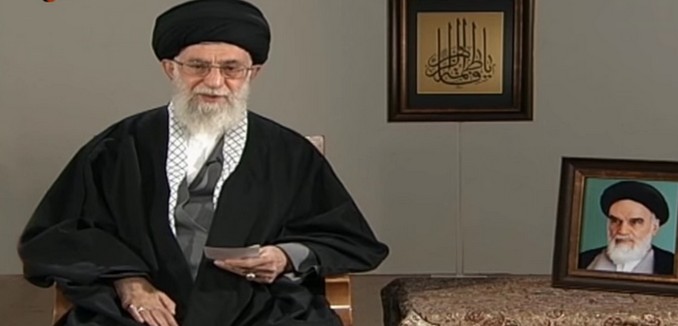Noting that “Iran’s security apparatus has tightened around domestic opposition in a sign of the regime’s growing self-confidence,” Abdulrahman Al-Rashed, former general manager of the Saudi TV network Al Arabiya, argued in a column Thursday in A Sharq Al Awsat that a nuclear agreement with the West will strengthen Iran’s hardliners,
During the past few months of international negotiations, Iran’s security apparatus has tightened around domestic opposition in a sign of the regime’s growing self-confidence. The Kurdish rebellion a week ago in the city of Mahabad, northwest Iran, was a protest against the practices of the security forces. A girl whom an intelligence officer tried to rape jumped off a balcony, and members of the Kurdish minority— whose population numbers around 8 million—revolted. …
The Iranian Revolutionary Guard is also active domestically in trying to suppress sedition, as it has done in Mahabad and Baluchistan province in the southeast. They have also increased their presence in Khuzestan province, where there is a restive Arab population. The government has previously faced considerable difficulties in taming its Azeri citizens in the northwest. …
By signing the nuclear agreement, the hardliners will feel more confident, aware that foreign threats will have been neutralized and that no one will be able to confront them. If Washington had linked the deal to conditions obliging Tehran to halt its military adventures in the Middle East in exchange for ending international sanctions and a pledge that the West will not militarily target Iran, the situation of the moderates within the theocratic regime may have been better.
Al-Rashed also wrote that the money Iran will receive in sanctions relief will enrich the hardliners, and the prestige that comes from a deal will enhance their status within the Iranian government. Notably, al-Rashed characterized the presidential term of Mohammad Khatami, who was Iran’s president from 1997 to 2005, as “[t]he only time Iran has been led by a moderate since the Islamic Revolution” in 1979.
Al-Rashed’s description of Iran’s tightening security apparatus in recent months accords with a report released last week by the U.S. Commission on International Religious Freedom, which documented the increasing persecution of religious minorities in Iran. In a recent New York Times op-ed, three experts on Iran from the Washington Institute for Near East Policy argued that even after a nuclear deal, Iran will continue seeking to export its revolution and destabilize the Middle East.
[Photo: Nowruz Irani / YouTube ]




